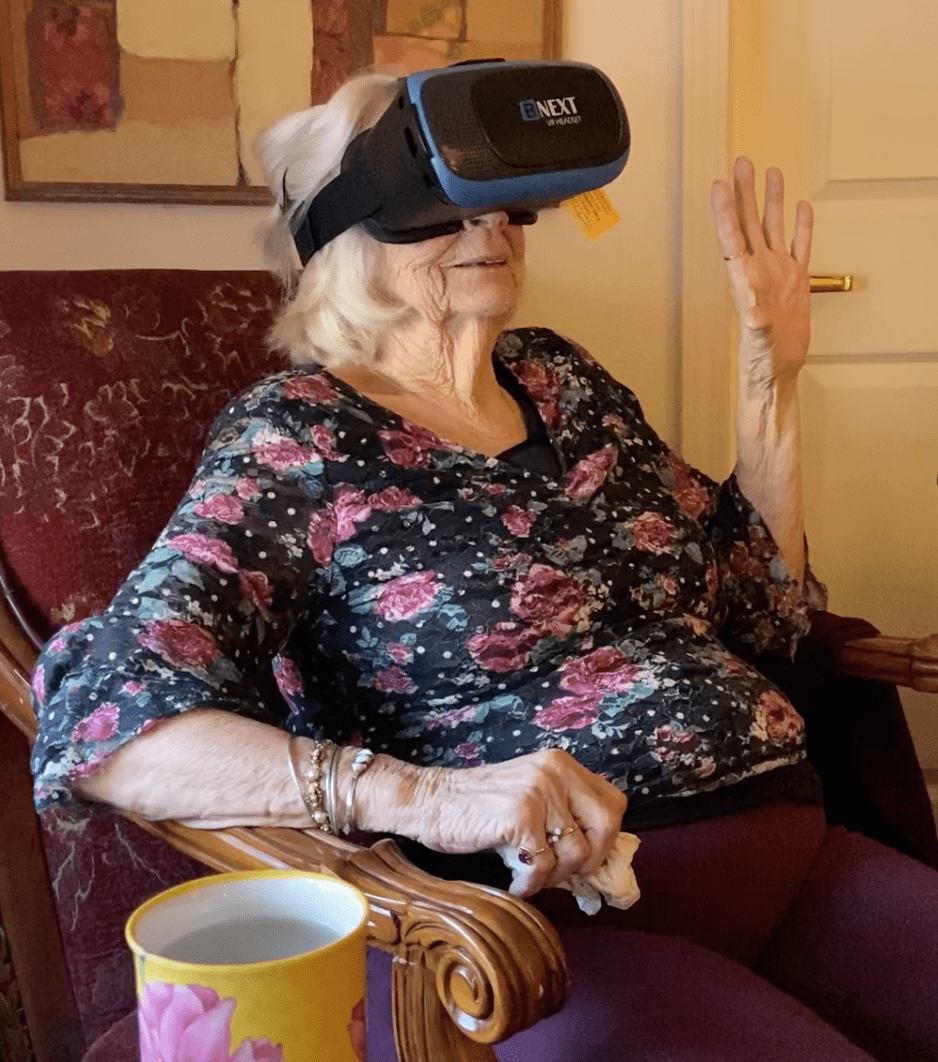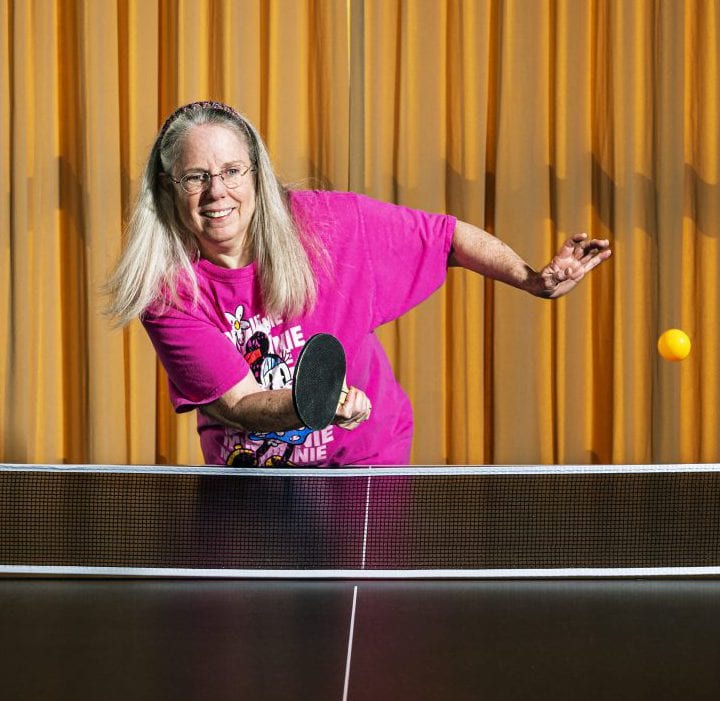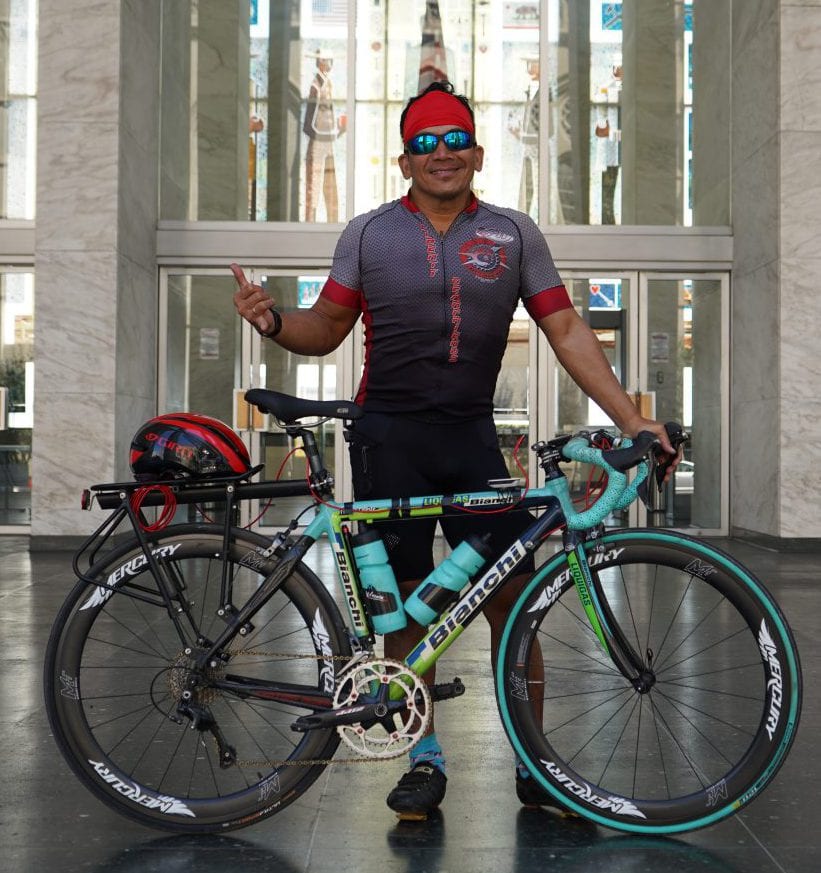
He’ll Never Ride Alone Again
How one Mason relied on his brothers for a solo 550-mile bike ride for charity.
By Julie Bifano Boe
Residents on the Covina campus of the Masonic Homes of California are spread out by living arrangement and their required level of care. But they all have something in common: Covina is more than just their residence. It’s their home. “It’s where your life is, where your family is,” says Sandy Fahey, a skilled-nursing administrator on the Covina campus.

Which is why it’s so important that Covina will soon unveil a critical new offering designed to keep those with specialized needs close to home. Until now, residents requiring skilled nursing or dedicated memory care have been referred off-campus, sometimes prohibitively far away. Once the Covina skilled nursing and memory care building opens, many of those patients will be able to return to their families in Covina. For future residents, it will mean a broader suite of care options never more than a hop, skip, and a jump away. “That makes a big difference in people’s minds,” Fahey says. “You’re always at home.”
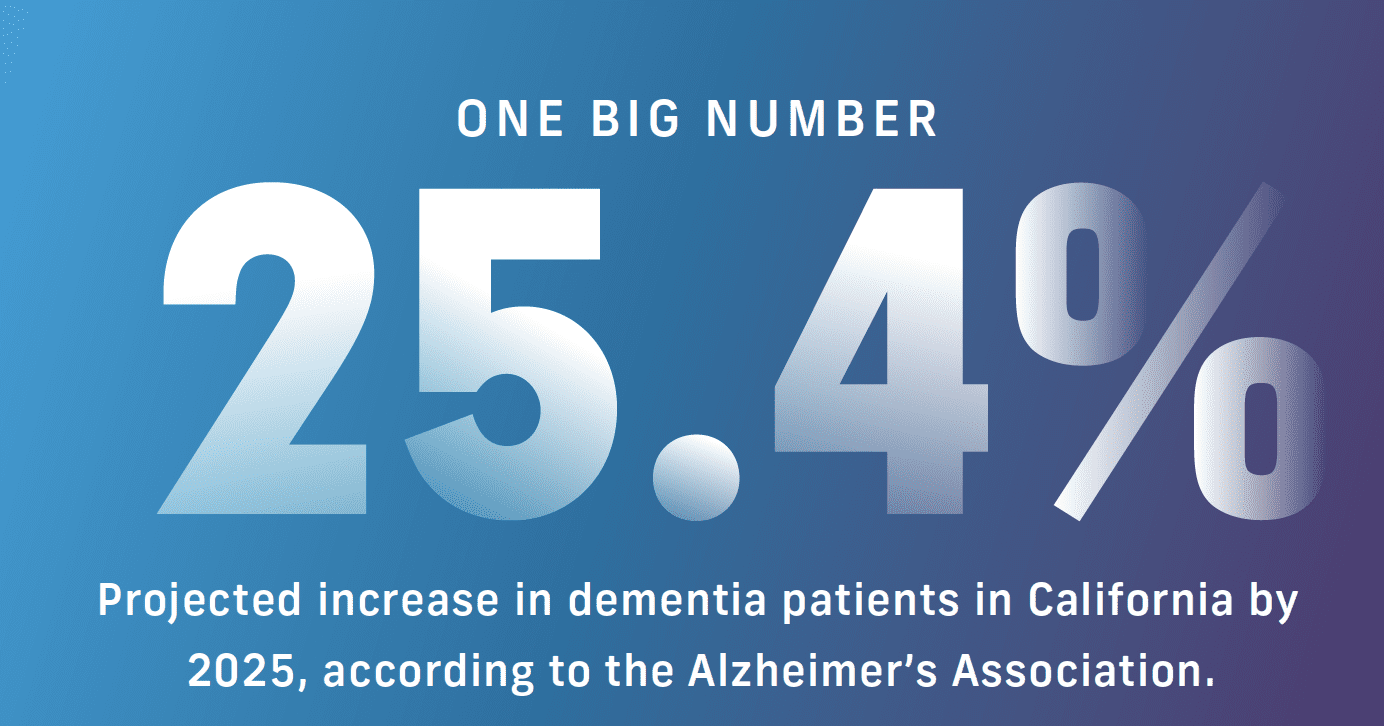
That sense of hominess served as inspiration for the new facility, which is expected to be completed during the third quarter of 2020. Unlike many other such facilities, which are designed to accommodate staff and equipment, Covina’s skilled nursing and memory care building is decidedly patient focused. That shows up in ways both big and small: Open, inviting floor plans featuring enormous windows letting in plenty of natural light. Interactive 65-inch touch-screen monitors in common areas, loaded with software designed for those experiencing memory loss. Private showers in patients’ rooms. Low-profile nursing stations that enable those in wheelchairs to converse more easily with staff.
The skilled-nursing and memory-care complex have been years in the making—a response to a growing demand on campus. At the same time as Covina’s new program is set to open, the Masonic Homes’ Union City campus is preparing for a new memory-care facility of its own.
When it opens, the new Covina building will include space for up to 32 people, with 12 private suites and two semiprivate rooms on each of the two floors. The first story is dedicated to residents dealing with Alzheimer’s, dementia, and other memory issues. Nursing stations are centrally located, offering medical staff easy access to all areas of the building. Each floor includes open dining areas and living rooms where residents can gather and socialize. The grounds feature a garden filled with flowers and plants intended to stimulate residents’ senses—an important form of treatment for those suffering cognitive decline.
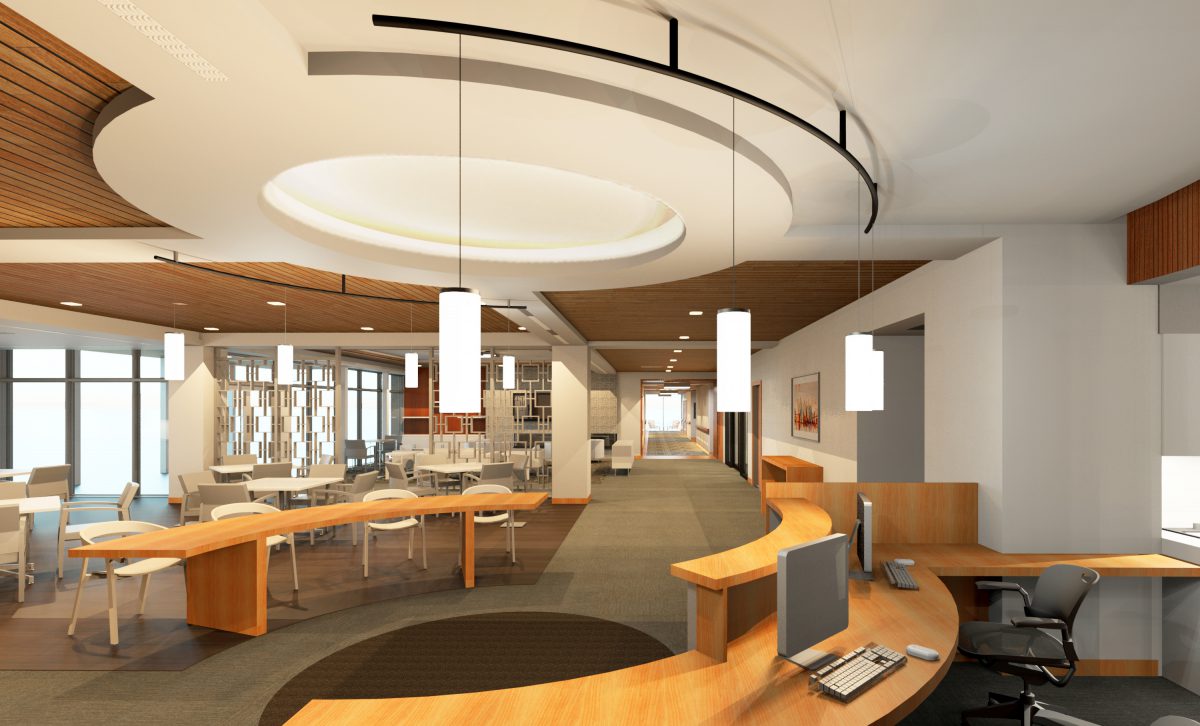
Inside each suite, the level of care being provided is extensive—including staff on hand to help residents in and out of bed, as well as with bathing and physical, occupational, and speech rehabilitation. For those confined to their beds, staff will endeavor to bring the restaurant-style feel of the dining area to residents’ rooms.
Beyond the amenities, the building represents an opportunity to reunite families that in the past have been forced apart because of medical needs. Says Judy Figueroa, executive director of the Masonic Homes in Covina, “It was really hard to tell someone they had to leave and potentially separate from their spouse.” She recalls one resident who dutifully made the half-hour trip to a skilled-nursing facility in Ontario every day to visit his wife. Once the Covina complex is opened, “They can be reunited at the same location and see each other whenever they want,” she says.
Contact us today to access your member benefits and services:
masonichome.org
(888) 466-3642
mcyaf.org
(877) 488-6293 (San Francisco)
(626) 251-2300 (Covina)

In 2019, Masonic assistance programs expanded to support even more people in need.
940% — The increase since 2015 in clients served by the Masonic Center for Youth and Families. In 2019, MYCAF reached 1,421 people through counseling and outreach services.
3,173 — The number of calls for service and referrals received by the Masonic Assistance Help Line— a 25 percent increase over last year.
1,200 — The number of Masons, families, Masonic youth order members, and Masonic Homes residents and staff reached by MCYAF through training and outreach, including anti-bullying campaigns, Masonic leadership retreat presentations, and crisis interventions.
317 — Elderly Masons and their wives or widows receiving housing and care through the Masonic Homes in Union City and Covina.
56 — The number of Masons provided with direct therapeutic services and crisis intervention counseling.
15% — Growth in clients served through MCYAF at the Masonic Homes Covina campus.
10 — The number of Masonic Homes residents included in a new Emotional Wellness Work Group pilot program. The program provides counseling services for elderly clients, a high-risk and often underserved group. MCYAF intends to become the sole provider of emotional support services for MHC residents over the next year.

How one Mason relied on his brothers for a solo 550-mile bike ride for charity.
